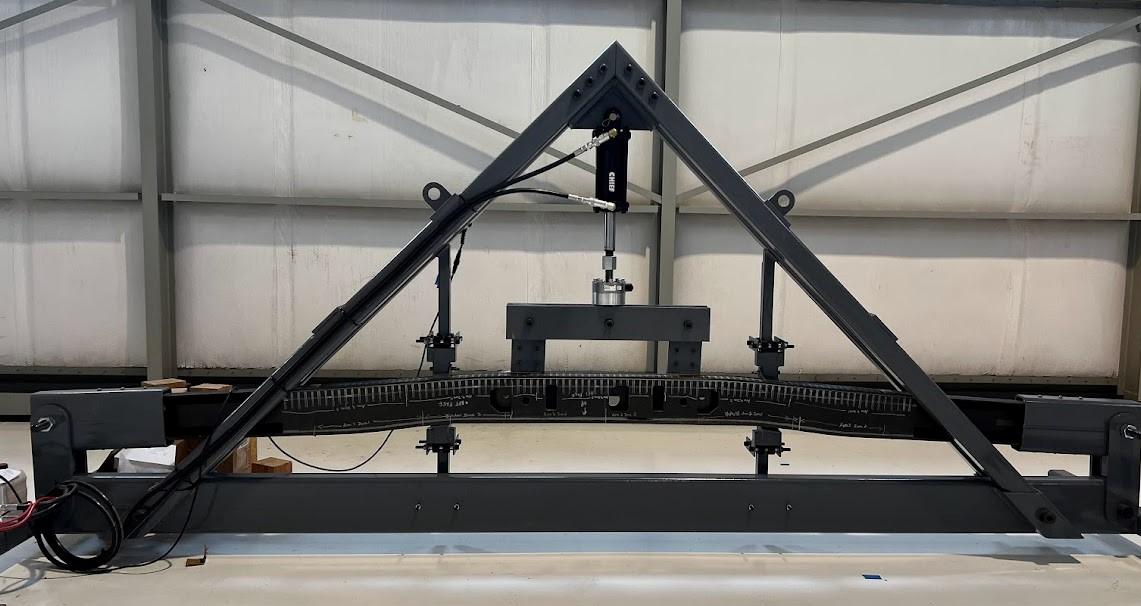
Bye Aerospace is testing the composite wing spar for the eFlyer 2 two-seat electric trainer.
Bye Aerospace has received FAA approval for the means of compliance for Part 23 certification of its two-seat eFlyer 2 trainer, the first for an all-electric light aircraft.
Approval of the G-2 issue paper clears Bye to enter the certification testing phase.
Denver-based Bye applied for FAA Part 23 certification of the eFlyer 2 in April 2018 and secured approval of its G-1 certification basis in August 2020. The company downsized in mid-2022 to focus its financial resources on completing approval of the means of compliance (MOC).
Comprising 16 specific certification plans covering all systems, subsystems and procedures, the G-2 is the first such approval in the general aviation industry and keeps the eFlyer 2 on track to be the first aircraft certified under Amendment 64 of Part 23 for a Level 1 normal category aircraft, Bye says.
“With this major milestone approved, Bye Aerospace is now poised to enter the testing and compliance demonstration phase of the certification, including the fabrication of eFlyer 2 serial no. 001 and several production conforming aircraft,” CEO George Bye says.
Manufacture of the first eFlyer 2 is underway, but more capital is needed to build the second and third aircraft required for certification testing. Securing the G-2 is expected to help with fundraising, he says.
Next steps include finalizing the fault hazard analysis and completing more conforming molds, tools and fixtures “along with area-specific test plans and testing, the wing spar, for example,” Bye says. “We remain on course to have the world’s first Part 23 Amendment 64 FAA-certified fixed-wing aircraft.”
The first electric aircraft to be type certified, the Pipistrel Velis Electro trainer, was approved in 2020 under the European Union Aviation Safety Agency’s (EASA) CS-LSA certification specification for light sport aircraft (LSA). This is a level below Part 23, and equivalent FAA rules for LSAs do not allow electric propulsion.
Now owned by Textron eAviation, Slovenia-based Pipistrel is seeking to obtain U.S. certification of the Velis Electro under a planned FAA rulemaking package called Mosaic (for Modernization of Special Airworthiness Certificates) that is expected to update the LSA rules. But Mosaic is delayed and the FAA now expects to issue a notice of proposed rulemaking in August.





